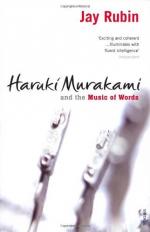|
This section contains 14,428 words (approx. 49 pages at 300 words per page) |

|
SOURCE: “Beyond ‘Pure’ Literature: Mimesis, Formula, and the Postmodern in the Fiction of Murakami Haruki,” in Journal of Asian Studies, Vol. 57, No. 2, May, 1998, pp. 354–78.
Strecher is an assistant professor of Japanese Language, Literature, and Culture at the University of Montana. In the following essay, he discusses Murakami's narrative strategies and styles in A Wild Sheep Chase, Hard-Boiled Wonderland and the End of the World, and Norwegian Wood, speculating on the novelist's achievement in relation to both the traditions of jun-bungaku and postmodernism.
With the publication of Kaze no uta o kike (Hear the Wind Sing; 1979), Murakami Haruki (b. 1949) found himself more or less at odds with well-known members of the Japanese literary establishment. If one takes Murakami at his word, this was not the result of conscious effort on his part, but rather a matter of his own individualism, a certain indifference (feigned or not) toward the conventions...
|
This section contains 14,428 words (approx. 49 pages at 300 words per page) |

|


